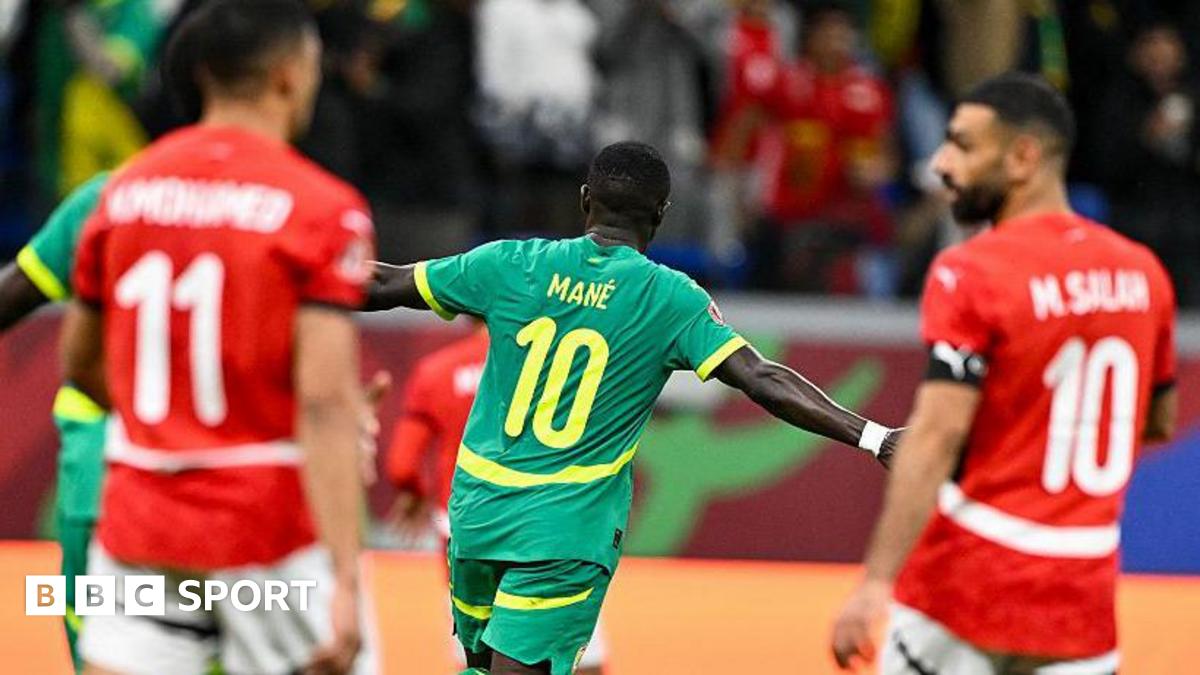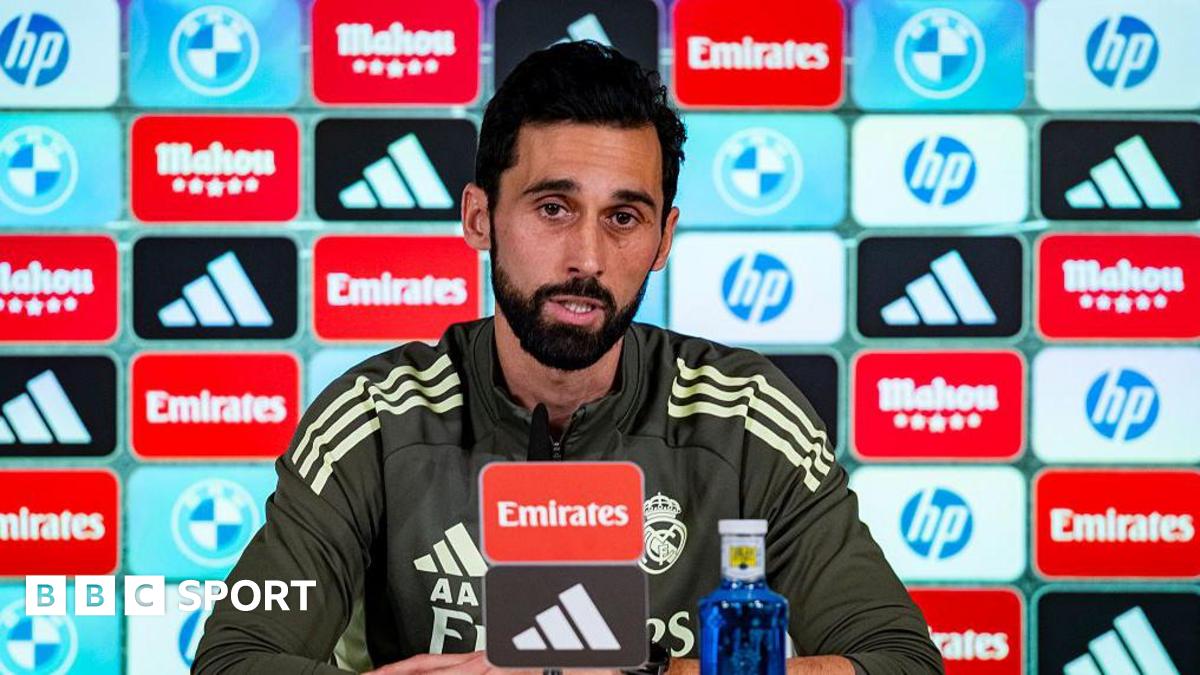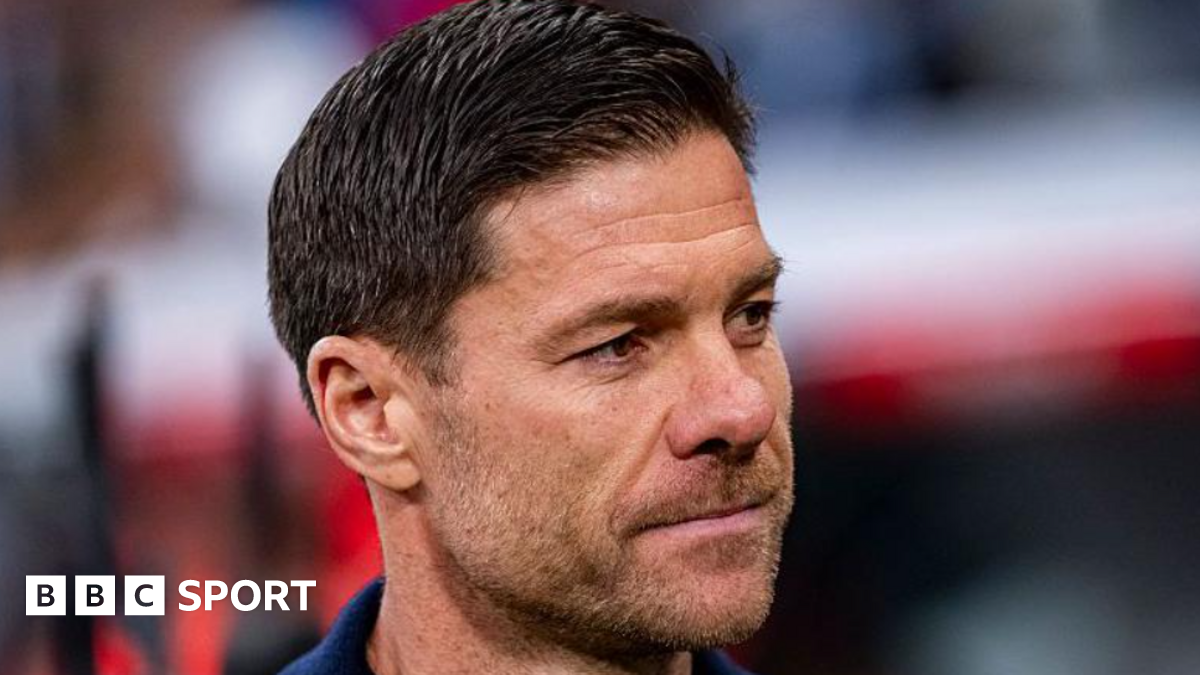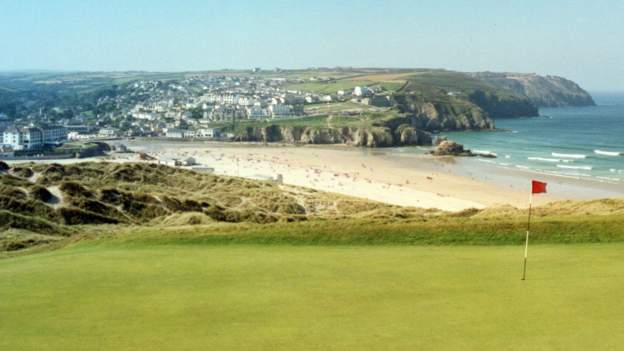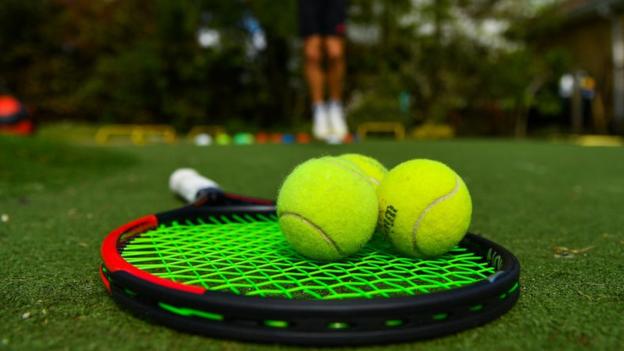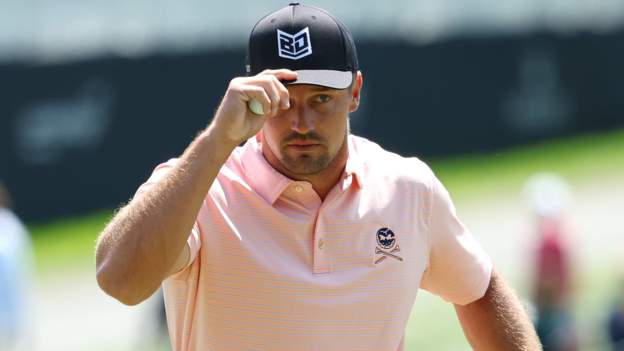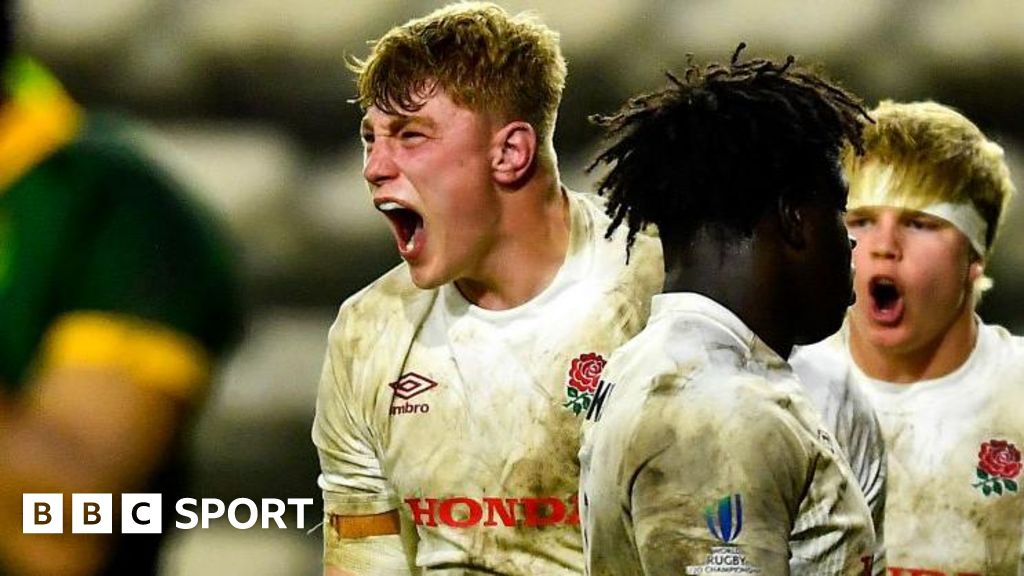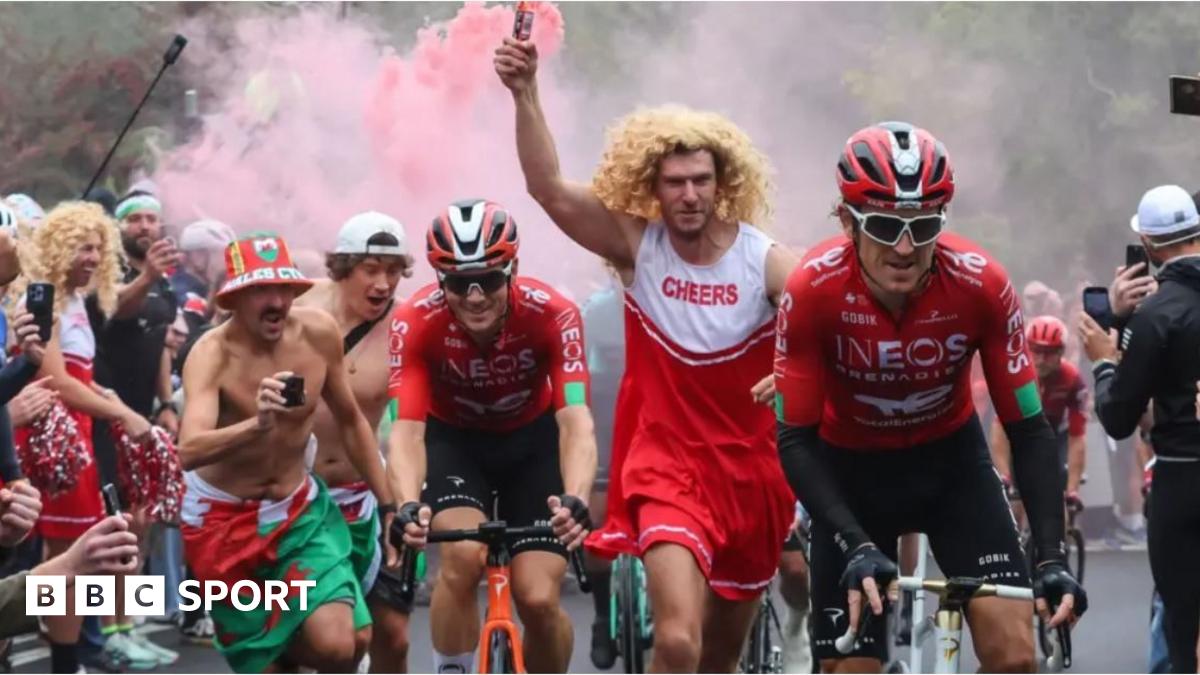Phones have been ringing off the hook, venue bosses are working harder than ever and search engines are being sent into overdrive after some recreational sports were given the go-ahead to return in England.
Golf, tennis, angling and basketball are among the sports taking tentative steps in allowing the general public to return to participation on Wednesday as coronavirus lockdown measures are eased.
But each sport is also urging caution and vigilance as they seek to keep the spread of the virus under control while also helping protect people’s mental health and wellbeing.
So how has the first wave of the nation’s sports begun to come out of hibernation after two months?
BBC Sport has spoken to a number of clubs and organisations hoping to use fun and games as a vehicle for helping the country come gradually out of lockdown.
Tee times snapped up in less than 24 hours
Courses across England will once again be alive with the sound of golf balls being hit on Wednesday.
Governing bodies have worked together to formulate how the game can be played safely during the ongoing coronavirus pandemic.
There is plenty of guidance on how to socially distance, new rules on course etiquette and phrases such as “wash your hands, don’t touch the flag” which have now entered the golfing lexicon.
David Rickman, the R&A’s executive director of governance, said everyone in the sport is “conscious of the continued impact of the pandemic and that lives are still being lost”, but added that golf has a “small part to play” in the nation’s wellbeing.
“We are fortunate that golf lends itself to social distancing, so by making a few relatively small changes to the rules and the environment in which we play, we can make it safe for golfers,” he told BBC Radio 5 Live.
Already Perranporth Golf Course, in Cornwall, is fully booked for when play can resume on Wednesday.
All tee times for the first day of play in more than seven weeks were snapped up in less than 24 hours after prime minister Boris Johnson announced that golfers could get back on the greens.
Sue McDevitt, general manager of the course, said the “booking system went crazy” after the announcement.
“I had one of the busiest days of my working career on Monday,” McDevitt told BBC Sport.
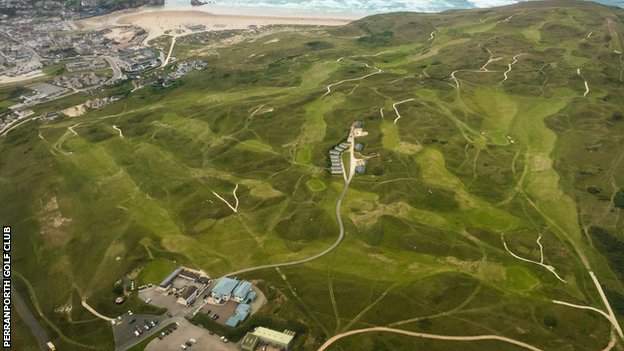
The booking of tee times, which was previously advisable at the club, has now become compulsory during the pandemic in an effort to help keep golfers safe and numbers on the course in check.
While it is largely done online, McDevitt says she is also taking bookings from older members who simply don’t have access to technology.
It has been a busy two days getting ready to once again host golf at Perranporth, but with seven weeks of preparation the challenge has been met “with ease” considering the circumstances.
“We always knew it was going to come back at some point, so I’ve been really busy during these last few weeks coming up with a plan on how we are going to do it, ” McDevitt said.
“I even emailed what the plan was to the members so they would be ready.”
Just hours after the government announced that recreational golf would be free to restart, the club published a nine-point notice on their social media channels outlining their approach.
It is a basic roadmap back to the greens that was drawn up with the help of the major golfing bodies in England and in conjunction with neighbouring clubs, West Cornwall, Tehidy Park, Mullion and Newquay.
“We already had close working relationships so we decided between us that we would have similar plans so golfers in the area would all have similar options,” McDevitt said.
“It is in all our interests to get as much golf going in Cornwall as possible.”
As far as business goes, much of the club remains unable to open during the pandemic, with the course’s accommodation, restaurant, bar, golf shop and practice facilities all shut.
A majority of staff, including some green keepers, remain furloughed, which makes aspects of opening – including maintaining the course and keeping tabs on golfers – a challenge.
“The course is open and it looks absolutely beautiful, but it is perhaps not going to play as well as it normally would at this time of year because it hasn’t had all those man hours manicuring it,” McDevitt said.
“It is playable but the members may lose their ball in the rough initially. They are quite happy with that because they can play golf. It doesn’t need to be at Championship standard yet, but we will get there.”
Angling can ‘have a positive effect on mental health’
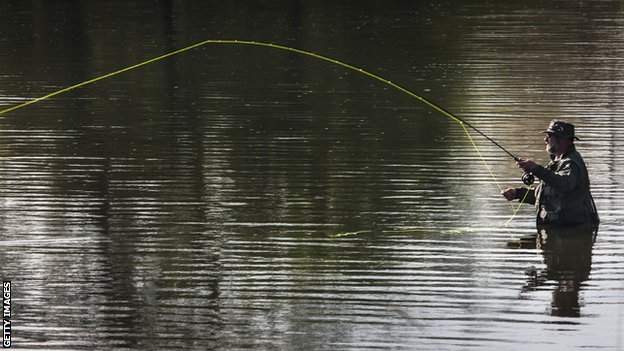
Angling has found itself thrust into the limelight since the gradual easing of lockdown restrictions was announced, with both fresh and saltwater recreational fishing being allowed to resume across England.
But why has it been identified among the sports and pastimes deemed appropriate and suitable?
According to Martin Salter, head of policy at the Angling Trust, it’s the result of producing a detailed plan to demonstrate why angling is a Covid-19 compliant sport due to its general nature, and earning recognition from the government that it “has potential to be part of the solution and not part of the problem”.
“Spending time outdoors and in fresh air can limit the spread of the virus rather than the other way round,” Salter told BBC Sport.
“We can help disperse crowds and have a positive effect on people’s mental health and wellbeing.
“But it really is incumbent on all of us to realise we’re going to be ambassadors for our sport. The spotlight is going to be on us.
“The last thing I want to see is pictures in newspapers and other media outlets of anglers crowding around piers or breakwaters too close to each other.
“We must continue to respect the social distancing guidelines and ensure, when we say to both government and society that angling is a Covid-19 compliant sport, we demonstrate that responsibility to ourselves and each other.”
The Angling Trust is also continuing to lobby government for clarity over when and how tackle and bait shops can reopen to support the angling infrastructure, in a similar way to cycle shops being allowed to continue trading during lockdown.
“Those shops are where you pick up your permits, your licences, your day tickets, where you get your advice as anglers,” he said.
“A lot of those retailers have been struggling so we’ve made direct representations to government and we hope they can grant an extension to allow those shops to reopen before June.”
While recreational angling is free to resume from Wednesday, match fishing and competitions remain banned for the foreseeable future in line with other major sporting events and mass gatherings.
The coarse fishing close season for rivers and some still waters also remains in place until 16 June.
Some commercial fisheries across England will actually remain closed as they choose to “wait and see” how the sport’s approach to coming out of lockdown unfolds.
One that will be welcoming anglers back is Makins Fishery, near Nuneaton, in Warwickshire, but under a series of rules and guidelines, including only allowing pre-booked visits and operating strict daytime opening hours.
Wendell Ward, manager of the three-lake facility, has had three phones ringing off the hook since Sunday evening, but stresses anglers will need to be responsible.
“We have to ensure people can return to fishing in a safe environment,” he said.
“Initially I did think it might be a bit too soon to reopen and I would’ve been happy to wait a bit longer. But if we put the right measures in place and control numbers, people can get back to enjoying the sport.
“I know people have been chomping at the bit to get back out there since lockdown, but I don’t want them being careless and reckless.
“Restrictions have been relaxed and reopening is vital for our business, but if people turn up in big groups and car loads, they will be sent away and we’ll have to reconsider our choice.”
‘Bonkers’ demand for public facilities
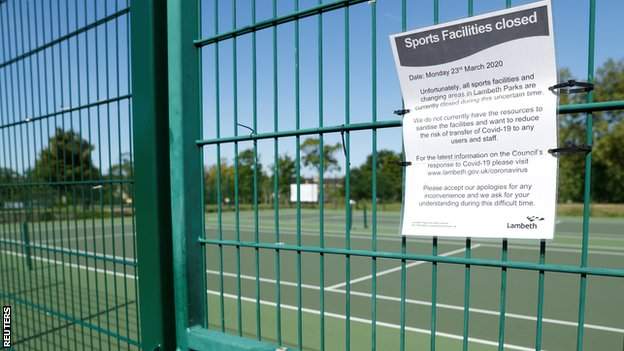
With people in England allowed to exercise outside as many times as they wish, a variety of facilities can now be accessed.
Although playgrounds, outdoor gyms and ticketed outdoor leisure venues will remain closed, playing one-on-one sports, including tennis, basketball and even a hit in the cricket nets, is permissible as long as social distancing rules are observed.
Sunday’s government announcement saw searches for venues “go bonkers” for Playfinder, an online booking portal for grassroots facilities.
Jamie Foale, the founder and chief executive of the company which has 5,200 venues on its books across the UK, said Monday was the marketplace’s busiest day since lockdown began.
A new filter is poised to be added to their search options, distinguishing what venues are open to the public as not every court, course or venue is suitable or able to host people yet.
“As a result of the clarification given on Monday we are seeing almost all councils open their suitable venues to a degree,” said Foale, whose company manages bookings for a number of councils, as well as schools and commercial sites.
“Councils recognise they a have a big part to play in helping people stay fit and healthy through this and I know that they want to be able to open facilities so they can do that.
“We had a number of bookings made on Monday and a lot of searches for free courts, which has always been a big part of what we do.”
Foale said the most difficult part of helping people prepare for the resumption of recreational sports has been getting in touch with the venues themselves when huge swathes of employees in the sector have been furloughed.
“We’ve madly been calling up the venues to make sure we have a firm grip on what is available and what isn’t,” said Foale, whose company will not be taking booking fees during the pandemic.
“Communication has been hard when all these businesses are struggling, trying to work out how they will operate in a post-pandemic world.
“We need to keep the nation moving and active. We, as a business, set up to to help people play sport. And that service is now needed more than ever.”
Tennis opening ‘slowly and cautiously’
A sign of the times that many may end up seeing on their local court or around their favourite course will be signage reminding participants of the rules which have made a return to action possible.
Governing bodies for each sport have different directives to best suit the game being played. All of them, however, have the same underlying message about maintaining social distance.
Not every sporting venue will automatically open as a result, with this being a key message from the Lawn Tennis Association, which governs the game in Britain.
Venues have been advised to take time to ensure they are set up to reopen safely, so players in certain places might have to wait a little longer before they can get back on court.
The Queen’s Club in London, one of the nation’s most iconic clubs, for example, will not be at full capacity as they have chosen to open only nine of its 27 outdoor courts to members from Wednesday.
It is a similar situation at the Northern Tennis Club, in Manchester, where only seven of their 18 outdoor courts will be opened to ensure social distancing is maintained.
“We’re hugely relieved and excited that we’re able to start reopening the courts, but we’re also conscious that we must do it slowly and cautiously,” chairman Neville Hewer told BBC Radio 5 Live.
“We’ve been maintaining our courts during the lockdown period so we were in a position to go when we had the opportunity to, but we’re mindful of the fact that in this circumstance we’re walking on eggshells because of this unprecedented scenario.”






